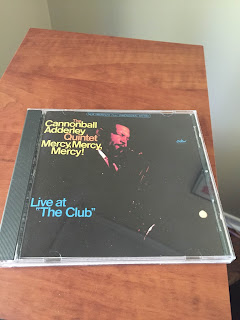
Artist: ...and you will know us by the trail of dead
Album: Source Tags & Codes
Label: Interscope
Year: 2002
Well well well. Source Tags & Codes, along with Heartbreaker is another album I have listened to hundreds of times, and am really, earnestly revisiting for the first time in years. A while back, I purged many of the indie albums I had bought in high school. At this point, I can proudly say that I really only own the albums that I was really into, and albums I bought on a whim, due to hype or some other factor, are mostly out of my collection. Thirteen years later, what do I make of ST&C?
Coming out the same year as Mclusky Do Dallas, Turn On The Bright Lights, Kill The Moonlight, and Yankee Hotel Foxtrot, Source Tags still holds up incredibly well, for the most part. The album operates in a weird sonic niche, far more aggressive than most of the decade's indie rock, certainly detached from most of the emo roots of the group (except, perhaps, lyrically), and nowhere near as hard as a group like Tool or System of a Down, but far more aggressive than the popular indie rock of the day. In an era where groups like The Kings of Leon or The Killers could get popular, there doens't seem to be much reason that the major label debut of Trail of Dead shouldn't have made the group huge. Though their disputes with their label are well-known and well-documented at this point, Source Tags is, dare I say, probably still a masterpiece.
The album's first two songs are instantly memorable and endlessly replayable, especially for those of us who grew up with the record. "It Was There That I Saw You," opens the album with the band in full force. The sonics of the dueling guitars playing in harmony is fantastic, the way the bass drops in before the verse is perfect, and the song ends with a beautiful crescendo. The big single from the album was "Another Morning Stoner," and with a different kind of dueling guitar interplay, and the song is another winner. In its time, the album was compared favorably to Sonic Youth. The comparison sticks out even from a song structure perspective, with strong verses and choruses in the songs, which give way to guitar interplay (in lieu of a solo), and then back to the verse/chorus, one more time. But the routine really doesn't get redundant, and the songs all work.
As we get to the heart of the album, though the first two and last two songs are the obvious stand-outs, all the middle ground is superb. "Bauldelaire" has a driving rhythm, and refuses to let you lose interest in the album three songs in. "Homage" is harsh and aggressive, but it gives way to three of the more peaceful songs on this admittedly aggressive album. "How Near How Far" comes out of its middle-part instrumental lull better than any other song. "Heart in the Hand of Matter" probably has the most interesting rhythmic arrangement on the album, and though "Monsoon" has some embarrassing lyrics, the song works. We come out of this sequence in the album with the sublime "Days of Being Wild", and close out with "Relative Ways" (other single), a short instrumental piece, and the brilliant title track. Though the group hasn't produced another album nearly this good (though its amibitions remain high!), the group should be proud. Thirteen years later, Source Tags & Codes has 11 perfect songs. It's a wonderful album, and coming from the last days of major label rock (an issue I should try to address in a separate essay), it's unlikely we'll see something like this again.
Given all that I've written, you may think I could go back and listen to this album again and again. Unfortunately, it has a fatal flaw: some of the worst production I've ever heard. In the last few years, and certainly since I was in high school, I've learned more about the loudness wars. Also, just being in a band, I've learned the difference between good and bad production. That doesn't mean everything should be clean. Bee Thousand isn't particularly "well" produced, but the instruments are well-defined, dynamics are there, and the album has personality! Source Tags & Codes on the other hand sounds...not good. Maybe not as terrible as a Taylor Swift song, maybe not as bad as Death Magnetic, but my lord, the drums and bass are nearly unlistenable. For the bulk of the album, the drummer is playing a ride cymbal whose terrible sound quality just obscures everything interesting going on. The guitars, when not playing single notes, are washed away in noise. The bass is present, but only in feel, not definition. In other words, I can hear it's there, but what it's playing is far less clear.
Source Tags & Codes is a masterpiece whose production is terrible, terrible, terrible. It's a shame. Will make fine listening in a car, but on the stereo I now have, it sounds like shit.













